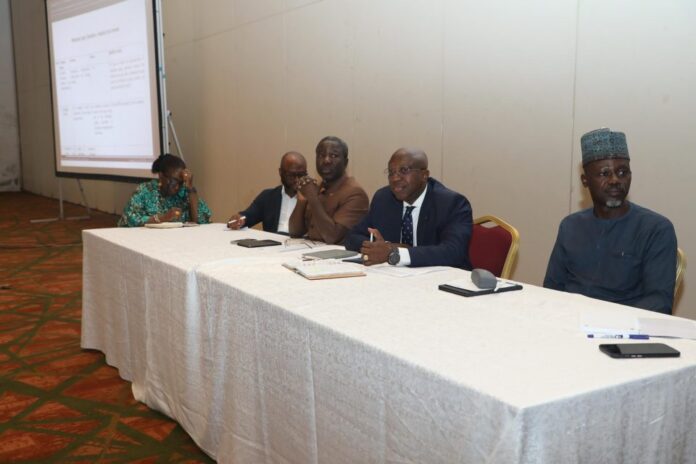NMDPRA, stakeholders collaborate to address wholesale gas challenges
CHIGOZIE AMADI
The Nigerian Midstream and Downstream Petroleum Regulatory Authority (NMDPRA) has reiterated its commitment to addressing and resolving critical regulatory challenges within the wholesale supply sector for natural gas and petroleum liquids.
The Chief Executive Officer of NMDPRA, Mr Farouk Ahmed, said this during a stakeholder sensitisation on Monday in Lagos.
Ahmed, who was represented by his Secreatary and Legal Adviser, Dr Joseph Tolorunse, said that the workshop aimed at clarifying and enhancing the implementation of regulations governing wholesale supply operations of natural gas and petroleum liquids in Nigeria.
The central topic of the workshop was the 0.5 per cent levy associated with the Midstream Downstream Gas Infrastructure Fund.
Ahmed said that this levy would be reassessed to ensure compliance with the Petroleum Industry Act (PIA), which was introduced in August 2021, replacing the Petroleum Act of 1969.
“This transition not only bolsters domestic energy security but also enhances opportunities for international exports.
It also provide a clear regulatory framework for entities involved in the sale and delivery of natural gas and petroleum liquids,” Ahmed stated.
He encouraged stakeholders to share their concerns about the implementation process to foster alignment and collaboration.
“The workshop underscored the significant benefits of these operations, including increased investment opportunities, improved transparency in hydrocarbon measurement and equitable trading practices.
“These changes are anticipated to create a more competitive market and solidify Nigeria’s position in the global energy sector,” he said.
Acknowledging the challenges faced, Ahmed emphasised NMDPRA’s commitment to resolving disputes and addressing the needs of all stakeholders.
He said that the workshop served as a vital platform for open dialogue, focusing on collective responsibility in meeting current and future demands for wholesale gas and petroleum supplies.
He urged participants to work closely with the authority to optimise midstream and downstream operations, stimulate infrastructure development.
Ahmed also urged stakeholders to contribute to the growth of Nigeria’s energy sector, a proactive approach deemed essential for both the national economy and Nigeria’s role in the global energy market.
However, some industry stakeholders raised concerns about the implementation of the 0.5 percent levy under the PIA.
They emphasised the need for clarification and mutual understanding between authorities and the industry.
Mr Lanre Daramola from Aradel Energy described the engagement as a positive step, expressing hope that discussions will clarify the implementation of the PIA regulations.
He pointed out a significant gap in the legislation, noting that does not specify who is responsible for collecting the levies.
“There is a need for understanding between the authorities and the industry to address this issue, and discussions are ongoing,” he added.
Another participant, Mr Emmanuel Cofie-Spiff from Oando Energy, noted various views were shared aspects of wholesale gas operations, including supply issues and the 0.5 percent payment on gas transactions mandated by the PIA.
“While many concerns have been raised, there is optimism that this stakeholders’ meeting will pave the way for regulations that benefit both operators and the government.
“Stakeholders clarified that while they do not oppose the PIA, they seek clarity on its implementation.
“A pressing question remains regarding who is responsible for paying and collecting the 0.5 per cent levy.
“The NMDPRA has suggested that since industry players produce the gas sold to consumers, they should be responsible for collecting the levies and remitting them to the government,” he added.
He, however, said that many International Oil Companies (IOCs) had expressed reluctance, arguing that this responsibility requires further clarification.
“As discussions progress, stakeholders remain hopeful for a consensus that will facilitate the effective implementation of the PIA regulations, fostering a favourable business environment for both the government and industry operators.
The workshop attracted over 70 participants representing various sectors of the oil and gas industry.

























